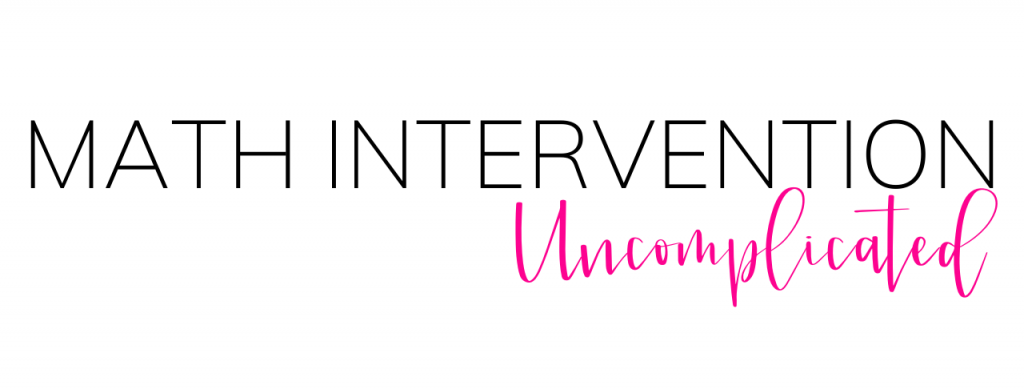Math intervention is intended as a tool to support students who are not yet successful in the tier 1, general education curriculum without additional supports. So should you pre teach math skills in math intervention?
The answer is: maybe! But there is much to consider when determining whether pre-teaching tier 1 skills is appropriate in your math intervention setting.

What Is the Math Intervention Setting?
Tier 3: If you are in a tier 3 setting with students who are working through instructional gaps one or more years behind their grade level instruction, math intervention time should be focused on addressing those instructional gaps rather than using that time to pre teach math skills.
If a student is receiving a pre-teach of tier 1 instruction each day during their tier 3 math intervention sessions- when will their instructional gaps ever be addressed? Simple. They won’t. Should tier 3 math groups be used to pre-teach math skills for tier 1 instruction? Probably not.
If you are in a tier 2 setting you are working with students who have specific instructional gaps from previously completed curriculum. Look at your future curriculum- are these skills that they will not have the opportunity to revisit throughout the school year? If that’s the case, should you be using your tier 2 math intervention time to pre-teach tier 1 instruction? Not primarily.
There may be a case for pulling your tier 2 students into a small group to pre-teach instruction on specific occasions, however, this can not be the entire focus of your tier 2 instruction. Again, if students’ skill gaps are not addressed in tier 2 small groups, when will they be addressed?
What Math Skills Are You Pre Teaching?
Until this point in the post I have described the relationship of tier 2 or tier 3 intervention to a direct tier 1 pre-teach. For example, in tier 1 tomorrow students will be comparing 3-digit numbers. A direct pre-teach would address how to compare 3-digit numbers in a small group prior to whole group instruction.
There is another way to support your students before they receive new instruction! Look at the foundational skills needed to access tier 1 instruction. If your students are not having success in the tier 1 setting because they have foundational gaps, you may be able to address a skill or standard that will be supportive toward tier 1 instruction.
For example, if you know tier 1 instruction will be focused around comparing 3-digit numbers, students can be supported in tier 2 or tier 3 instruction by examining the skills that are foundational to 3-digit comparisons. This would include understanding the place value of 3-digit (or even 2-digit!) numbers. Understanding the meaning of the <, > and = signs and having familiarity with the language of comparison. By planning your intervention schedule and when you will address specific skill gaps based on upcoming tier 1 units you are able to both fill gaps AND support a “pre-teach” of tier 1 concepts.
Who Might You Pre Teach Math Skills to?
When you are looking at your students at the tier 1 level and considering who might benefit from a direct pre-teach of tier 1 concepts, there are some students who would be a good candidate for this type of instruction.
- Students who do have the foundational skills needed to understand the tier 1 concept.
- Students who lack confidence and could use a “boost” before instruction.
- Students who excel in a small group setting who may become overwhelmed during whole group instruction.
In this scenario, the gen ed classroom teacher would likely be the person to pre teach math skills and could be as simple as a 3-5 minute pull-aside at the beginning of the math block while other students are completing a math center, solving a word problem or playing a fact fluency game.
Ready to Learn More?
If you are curious and ready to learn more about effective math intervention, sign-up to join the waitlist for Math Intervention Uncomplicated. The four-week course will be opening soon and you’ll be the first to hear all about it!






